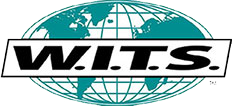Online Learning vs. Hybrid Training with In-Person Labs for Health Occupations
Share
NIRSA MEMBERS FREE WEBINAR Register Here:
https://attendee.gotowebinar.com/register/1370840755115138140
---------------------------------------------------------------------------------------------
In the pursuit of mastering the skills necessary for a health / fitness occupation such as personal training, choosing the right educational program can be a pivotal decision. With the growing popularity of online learning, many prospective students find themselves at a crossroads—should they opt for an entirely online course or a hybrid program that combines online learning with in-person labs? Let's compare these two options based on critical factors.
Limits of Online Training for Hands-On Skilled Professions
Online Learning Only
Online learning offers unmatched flexibility and convenience, allowing students to pace their study around other commitments. This format is especially beneficial for theoretical knowledge, where students can access a wealth of resources, participate in discussions, and take quizzes from anywhere in the world.
- Advantages:
- Flexibility: Study anytime, anywhere.
- Variety of Resources: Access to diverse online materials and forums.
- Cost-Effective: Often more affordable than in-person courses.
- Disadvantages:
- Lack of Hands-On Experience: In a practical field like personal training, the inability to practice skills in a live setting can be a significant drawback.
- Limited Interaction: Opportunities for live feedback or one-on-one instruction are often limited.
Hybrid Training with In-Person Labs
Hybrid training programs offer the best of both worlds by combining online coursework with practical, in-person labs. This approach provides the flexibility of online education while ensuring that students gain the essential hands-on experience needed in health occupations. Check out the W.I.T.S. Licensing Certification Courses and NCCA Accredited program. School License To Build An Effective Fitness Staffing Juggernaut
- Advantages:
- Practical Experience: In-person labs provide real-world scenarios to apply theoretical knowledge.
- Mentorship: Direct access to instructors and peers for immediate feedback and support.
- Skill Testing: Opportunities to demonstrate competence in essential practical skills.
- Disadvantages:
- Less Flexible: Requires commitment to scheduled in-person sessions.
Testing on Practical Skills
Online Learning Only
Assessment in online courses tends to focus on quizzes, written assignments, and digital projects. While these are effective for measuring theoretical understanding, they often fall short in evaluating practical competencies, which are crucial in the personal training industry.
- Testing Challenges:
- Simulated Environments: Lacks the realism that in-person assessments offer.
- Self-Assessment: Relies heavily on students' ability to self-evaluate, which may not always be accurate.
Hybrid Training with In-Person Labs
In a hybrid setting, students not only learn but also get the chance to be tested in real-world scenarios. This includes demonstrations, peer assessments, and instructor-led evaluations—all crucial for ensuring comprehensive and safe instruction to clients.
- Testing Benefits:
- Real-World Application: Tests in environments that mimic actual work situations.
- Immediate Feedback: Direct guidance and adjustments from experienced instructors.
- Safety Assurance: Ensures students can safely instruct clients, reducing liability risks.
- Exams On Your Scheduling: The Fitness Industry's ONLY NCCA Accredited written and practical skill exams.
Conclusion and Recommendations
For those considering a career in personal training or another health occupation, the choice between online learning and hybrid training largely depends on your personal circumstances and career goals.
- If Your Priority is Flexibility and Cost:
- An online course might be suitable if you need a more affordable and flexible option and are confident in your ability to seek out additional practical experience independently.
- If Hands-On Experience and Comprehensive Skill Testing Are Essential:
- A hybrid approach is recommended. The added benefit of in-person labs not only equips you with practical skills but also ensures that you can confidently and safely guide clients, which is indispensable in the health and fitness industry.
- Check out the W.I.T.S. Licensing Certification Courses and NCCA Accredited program. Many of your colleague institutions are doing it and making their responsibilities much easier annually
Ultimately, consider what aspects of learning are most important to you and how much practical experience you feel you will require. By aligning your choices with your career ambitions, you will be better positioned to succeed in a competitive field. So, it is essential to carefully evaluate and choose the right educational program that offers a balance of theoretical knowledge and practical experience.
Whether you opt for online learning or hybrid training, remember that continuous learning and hands-on practice are key to becoming a successful health professional. Contact Jay DelVecchio at jdelvec@witseducation.com
